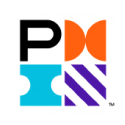Course Overview O v e r v i e w
- Course Overview
- Course Outline
- What’s Included
- What You’ll Learn
CAPM® Certification Training Course Overview
The CAPM® Certification Training Course introduces the fundamentals of Project Management for those starting their careers. It covers key concepts, terminology, and PMI-aligned methodologies. Learners gain a solid grounding in best practices. This course prepares you to contribute confidently to project teams.
Being formally trained in Project Management offers significant advantages. It not only enhances your understanding of best practices and industry standards but also boosts your confidence in managing real-world projects. Formal training demonstrates your commitment to professional growth, increases your employability, and provides a competitive edge in the job market.
What sets Training Deals apart is our commitment to delivering high-quality, learner-focused CAPM® training. Our course features expert instructors, interactive learning resources, and practical exam preparation tools to ensure your success. With flexible learning options and dedicated support, Training Deals empowers you to achieve your certification goals efficiently and confidently.

CAPM® Certification Training Course Outline
Module 1: Project Life Cycles and Processes
- Distinguish Between a Project, a Program, and a Portfolio
- Distinguish Between a Project and an Operations
- Distinguish Between Predictive and Adaptive Approaches
- Distinguish Between Issues, Risks, Assumptions, and Constraints
- Review/Critique Project Scope
- Apply the Project Management Code of Ethics to Scenarios
- How a Project Can Be a Vehicle for Change?
Module 2: Project Management Planning
- Purpose and Importance of Cost, Quality, Risk, and Schedule
- Project Management Plan Vs Product Management Plan
- Differences Between a Milestone and a Task Duration
- Number and Type of Resources in a Project
- Use a Risk Register in a Given Situation
- Use a Stakeholder Register in a Given Situation
- Project Closure and Transitions
Module 3: Project Roles and Responsibilities
- Compare and Contrast the Roles and Responsibilities of Project Managers and Project Sponsors
- Compare and Contrast the Roles and Responsibilities of the Project Team and the Project Sponsor
- Importance of the Role the Project Manager Plays
- Differences Between Leadership and Management
- Emotional Intelligence (EQ) and Its Impact on Project Management
Module 4: Follow and Execute Planned Strategies or Frameworks
- How it is Appropriate to Respond to a Planned Strategy or Framework?
- Communication
- Risk
- Project Initiation and Benefit Planning
Module 5: Common Problem-Solving Tools and Techniques
- Evaluate the Effectiveness of a Meeting
- Purpose of Focus Groups, Standup Meetings, and Brainstorming
Domain 2: Predictive and Plan-Based Methodologies
Module 6: Use a Predictive and Plan-Based Approach
- Identify the Suitability of a Predictive and Plan-Based Approach for the Organisational Structure
- Virtual
- Colocation
- Matrix Structure
- Hierarchical
- Activities Within Each Process
- Typical Activities Within Each Process
- Differences Between Various Project Components
Module 7: Project Management Plan Schedule
- Apply Critical Path Methods
- Calculate Schedule Variance
- Work Breakdown Structures (WBS)
- Work Packages
- Apply a Quality Management Plan
- Apply an Integration Management Plan
Module 8: How to Document Project Controls of Predictive, Plan-based Projects?
- Identify Artefacts that are used in Predictive and Plan-Based Projects
- Calculate Cost and Schedule Variances
Domain 3: Agile Frameworks/Methodologies
Module 9: Use Adaptive Approach
- Compare the Pros and Cons of Adaptive and Predictive and Plan-Based Projects
- Identify the Suitability of Adaptive Approaches for the Organisational Structure
- Organisational Process Assets and Enterprise Environmental Factors that Facilitate the Use of Adaptive Approaches
Module 10: How to Plan Project Iterations?
- Logical Units of Iterations
- Interpret the Pros and Cons of the Iteration
- Translate WBS to an Adaptive Iteration
- Determine Inputs for Scope
- Importance of Adaptive Project Tracking Vs Predictive, Plan-Based Tracking
Module 11: How to Document Project Controls for An Adaptive Project?
- Identify Artefacts that are Used in Adaptive Projects
Module 12: Explain the components of an adaptive plan
- Distinguish Between the Components of Different Adaptive Methodologies
- Scrum
- Extreme Programming (XP)
- Scaled Adaptive Framework (SAFe®)
- Kanban
Module 13: How to Prepare and Execute Task Management Steps?
- Interpret Success Criteria of an Adaptive Project Management Task
- Prioritise Tasks in Adaptive Project Management
Domain 4: Business Analysis Frameworks
Module 14: Business Analysis (BA) Roles and Responsibilities
- Distinguish Between Stakeholder Roles
- Process Owner
- Process Manager
- Product Manager
- Product Owner
- Why Do You Need to Identify Stakeholders in the First Place?
- Difference Between Internal and External Roles
Module 15: How to Conduct Stakeholder Communication?
- Communication Channel/Tool
- Why Communication is Important for a Business Analyst Between Various Teams?
Module 16: How to Gather Requirements?
- Match Tools to Scenarios
- User Stories
- Use Cases
- Identify the Requirements Gathering Approach for a Situation
- Requirements Traceability Matrix/Product Backlog
Module 17: Product Roadmaps
- Application of a Product Roadmap
- Which Components Go to Which Releases?
Module 18: How Project Methodologies Influence Business Analysis Processes?
- Role of a Business Analyst in Adaptive and Predictive Plan-Based Approaches
Module 19: Validate Requirements Through Product Delivery
- Acceptance Criteria
- Determine If a Project/Product is Ready for Delivery Based on a Requirements Traceability Matrix/Product Backlog

What’s included in this CAPM® Certification Training Course?
- Expert-led Training Sessions by Certified Instructors
- Digital Delegate Pack
What You’ll Learn in this Course
This course guides you through the essentials of Project Management, building a strong foundation for professional growth. As you progress, you'll gain practical skills and the confidence to apply PMI-aligned practices in real-world project environments.
- Learn Project Management principles, terminology, and PMI frameworks
- Learn to support teams and engage with stakeholders effectively
- Learn ethical conduct and professional standards in Project Management
- Learn predictive, agile, and hybrid Project Management approaches
- Learn to manage scope, time, cost, and resources
- Learn to align project outcomes with business objectives successfully


Our Upcoming Batches
Mon 10 Aug 2026 - Wed 12 Aug 2026
Duration: 3 Days
Mon 21 Sep 2026 - Wed 23 Sep 2026
Duration: 3 Days
Mon 26 Oct 2026 - Wed 28 Oct 2026
Duration: 3 Days
Mon 30 Nov 2026 - Wed 2 Dec 2026
Duration: 3 Days
Mon 13 Apr 2026 - Wed 15 Apr 2026
Duration: 3 Days Corby
Mon 11 May 2026 - Wed 13 May 2026
Duration: 3 Days Corby
Mon 1 Jun 2026 - Wed 3 Jun 2026
Duration: 3 Days Corby
Mon 7 Sep 2026 - Wed 9 Sep 2026
Duration: 3 Days Corby
Request More Information

Corporate Training
Elevate your workforce with expert-led corporate training that enhances skills, boosts productivity, and aligns teams with your business goals.

Individuals Training
Unlock personal growth and sharpen professional skills with tailored training designed to build your confidence and career success.
Your Path to Professional Recognition
Our path is designed to guide you through each stage with clarity, support and practical learning, helping you achieve your goals with confidence.

Step Forward with Globally Recognised Certification
A recognised certification is more than a credential. It’s proof of your commitment to professional excellence, providing you with the credibility, confidence, and global reach to advance your career in exciting new directions.
Globally Certified Professionals Over Time
Career Growth
81%Certified professionals reported receiving a promotion after earning their certification.
Global Opportunities
89%Certified professionals experienced access to new career opportunities, including leadership roles and global positions.
Not able to find what you are looking for
Our experts will guide you to the right course from thousands worldwide: tailored to your goals.
Frequently Asked Questions
The CAPM® (Certified Associate in Project Management) is an entry-level certification offered by PMI for individuals starting their Project Management careers.
This certification is ideal for students, recent graduates, and professionals seeking foundational Project Management knowledge.
You need a secondary degree (such as a high school diploma) and 23 hours of Project Management education.
The course covers Project Management principles, terminology, processes, and best practices as outlined in PMI’s standards.
Yes, the CAPM® certification is worth it for those beginning their Project Management careers. It validates your understanding of PMI’s global standards and enhances your credibility with employers. CAPM® opens doors to entry-level roles and sets a strong foundation for future certifications like PMP®.
What Our Customers Say About Us
 Matthew Sullivan
HR Business Partner
Matthew Sullivan
HR Business Partner
Our HR team registered for the Change Management Foundation & Practitioner Training Course, and it couldn’t have been more valuable. The team gained practical frameworks to guide employees smoothly through transitions with confidence.
 Olivia Barrett
Operations Manager
Olivia Barrett
Operations Manager
Our operations staff completed the Lean Six Sigma Green Belt Training Course, and it has been transformative. We can now identify inefficiencies quickly, and the tools we learned are already improving performance across the team.
 Benjamin Foster
Product Manager
Benjamin Foster
Product Manager
Our product team took part in the Agile Project Management Foundation & Practitioner (AgilePM®) Training Course, and the difference is remarkable. We’re now more adaptive, collaborative, and efficient in managing change.
 Lucy Harper
IT Support Lead
Lucy Harper
IT Support Lead
Our IT support unit attended the ITIL® 4 Foundation Training Course, and the results have been impressive. Processes are smoother, collaboration has improved, and the team finally speaks a common language of service management.
 Edward Clarke
Programme Manager
Edward Clarke
Programme Manager
We joined the PMP® Certification Training Course as a leadership group, and it was outstanding. The trainer made every concept practical, and the exam preparation resources helped the whole team feel ready to tackle complex projects.
 Amelia Rhodes
Project Officer
Amelia Rhodes
Project Officer
Our project office completed the PRINCE2® Foundation & Practitioner Training Course, and it has brought real clarity to how we manage projects. The trainer’s examples were excellent, and the team now follows a structured approach with confidence.

























